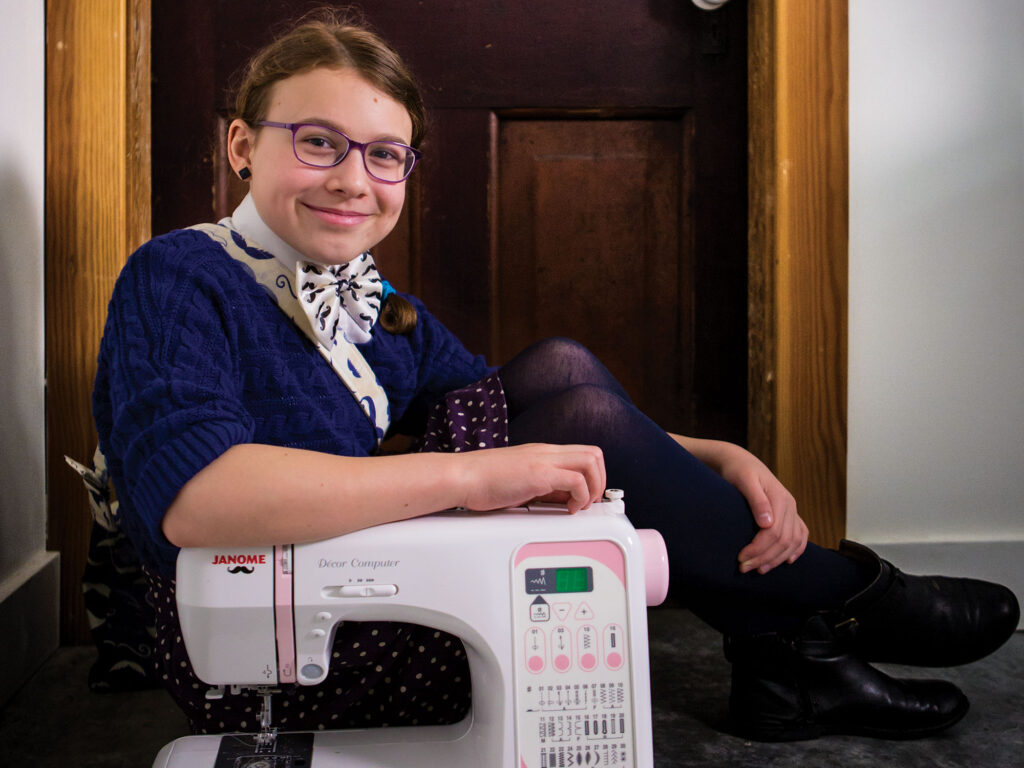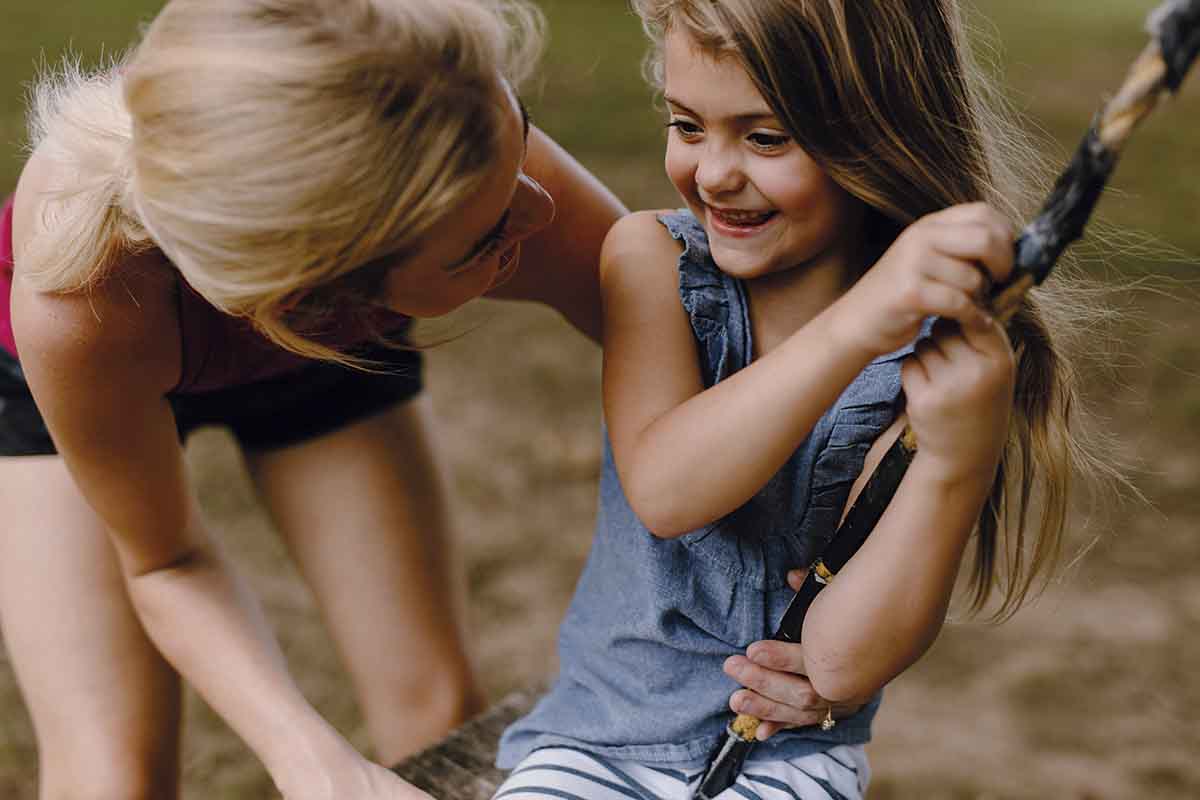Advertisement
The 11-Year Old CEO
Why creative kids are so awesome

Ella Psaila seems like a normal 11-year-old. She loves bacon, moustaches, and Project Runway. Upon first meeting her, you might not realize that she’s more accomplished than most 20-year-olds.
In early 2017, Psaila competed against 10 adult business owners in a Dragons’ Den-style entrepreneur challenge called Lions’ Lair. After wowing the judges, she was awarded $1,000 toward her new business, Cause WE Create: an online community where kids will be able to sell their own handmade items.
How to raise an entrepreneur
Okay, so raising smart, savvy, altruistic kids might seem too good to be true. Here’s how you can help make it happen.
Teach them empathy
Emotional intelligence (EI) is that indefinable ability to read others’ emotions and react in the best way. It’s a key quality possessed by 90 percent of top performers. To help build kids’ EI, give them opportunities to appreciate different points of view. To help them develop a sense of social responsibility, encourage little ones to volunteer for causes they’re passionate about.
Give them some freedom
Creativity and innovation are hallmarks of entrepreneurship. One study found that kids benefit from finding their own passions—rather than being pressured to excel at a certain activity. Researchers suggest that when children have this autonomy, they’re more likely to get involved in music, sports, and other hobbies.
This was certainly true for Psaila, whose mom admits that she doesn’t share her daughter’s passion. “I don’t sew at all,” Candy laughs. “I iron, I pin, and I cut fabric—sometimes wrong.”
Let them take risks
Psaila’s story is proof that you’re never too young to make a difference. Kids may be afraid to fail when trying something new, so encourage them to see setbacks simply as something to learn from. Try apps such as Positive Penguins, which can help tykes develop optimism and resilience.
Advertisement
The importance of creativity
Before she became an entrepreneur, Psaila took up sewing just for fun. “The reason I wanted to sew was because my Auntie Lynnette sews, and she makes really awesome costumes,” says Psaila. “A year later, my mom gave me the idea of starting my own business.”
Monica Candy, Psaila’s mom and sewing minion, credits her daughter’s creative pursuits for giving them special bonding time. “I cut, and she sews. It’s just good quality time for us,” she says, noting that cutting down on electronics and focusing on Psaila’s sewing has helped them communicate more. “Sitting down, making stuff, and having that creative time together— it’s very meditative.”
Why creativity is crucial
For kids (and everyone, really), the benefits of creativity are boundless. Here are just a few reasons to pick up a paintbrush or strum a guitar.
Improved motor skills
Activities such as drawing, sewing, and dancing can improve kids’ fine motor skills and self-awareness and even give them a confidence boost.
Better critical-thinking abilities
Allowing kids to engage in creative play lets them learn more about the world. Art, for example, is a chance for children to think critically about what they’re drawing, painting, or sculpting.
Boosted intelligence
Those piano lessons you hated as a kid might have made you smarter. Musical training, in particular, has been shown to boost young students’ IQs. Other creative pursuits that require discipline and focus can also give kiddos’ mental muscles a workout.
Becoming a CEO
Psaila’s original business, Sew-Awesome, began with gift giving. “We started by doing bookmarks for [Ella’s] class on Christmas,” says Candy, “and it’s just kind of gone from there.”
On her website (sewawesomedesigns.com), Psaila now sells hand-sewn cards, bookmarks, pouches, and other items that aren’t too labour intensive to make. More elaborate creations are reserved for her friends, who each receive a gym bag on their birthday.
Psaila developed the idea for her new nonprofit, Cause WE Create, when she took part in Lions’ Lair—an intensive six-week entrepreneur training program supported by the British Columbia Institute of Technology.
Cause WE Create will be a kids’ version of Etsy (an online marketplace where creators sell their art, clothing, and more), becoming what Candy calls “a community of creative kids.” The site (causewecreate.org) should be up and running in early 2018.
The “why” behind the business
But, Psaila adds, “There’s a catch.” Kids who sign up at Cause WE Create will have to donate some of their proceeds to charity. She and her mom are currently vetting charities in hopes of finding a few that “really speak to us and that kids can easily relate to,” says Candy.
Giving back has always been Psaila’s “why”—her reason for turning her passion into a business. She donates 25 percent of her sewing revenue to Sewing Seeds, a nonprofit that empowers women and children in Sierra Leone, Ukraine, Peru, and Mexico through initiatives such as sewing training programs.
“When I sell a bookmark, and I get to donate the money I raised, I get a really happy feeling in my heart,” Psaila says. “And a lot of kids don’t get to have that feeling, because most don’t have businesses. I want to help kids feel that way.”
Being an entrepreneur isn’t all fun and games. Psaila’s weeknights are a patchwork of business planning, sewing, highland dancing, Girl Guides— and, of course, schoolwork.
But her mom says it’s all worth it. “Watching her work hard and then donate money was really impactful,” Candy says. “As a parent, teaching that to your child is so amazing, because I’m learning so much from it too.”





